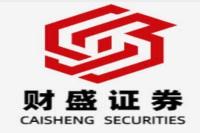Deciphering the Hong Kong Stock Market: A Deep Dive into Recent Trends (Meta Description: Hong Kong Stock Market, Hang Seng Index, Tech Stocks, Semiconductor Sector, BYD, Hua Hong Semiconductor, Investment Strategies)
Dive into the dynamic world of Hong Kong's stock market! This isn't your grandpappy's market report; we're going beyond the surface-level numbers to unravel the intricate threads driving recent performance. Imagine having a seasoned market analyst whispering insider insights directly into your ear – that's the experience we're crafting here. We'll dissect the recent surge in specific sectors, analyzing the underlying forces at play, and equipping you with the knowledge to navigate this complex landscape with confidence. Forget dry statistics; we'll explore the human element, the emotional rollercoaster of investing, and the real-world implications of market fluctuations. Whether you're a seasoned investor looking to refine your strategy or a curious newcomer eager to learn the ropes, this in-depth analysis offers valuable insights into the current state of Hong Kong's financial scene, focusing on key players like BYD and Hua Hong Semiconductor, and the overall health of the Hang Seng Index and Hang Seng Tech Index. Get ready to unlock the secrets of success in the thrilling arena of Hong Kong stocks! This is more than a report; it's your passport to smarter investing.
Hang Seng Index and Tech Sector Performance
The Hang Seng Index, a barometer of Hong Kong's stock market, opened slightly higher on December 3rd, registering a modest 0.18% gain. This seemingly small uptick, however, masks a complex interplay of factors. While the overall market showed resilience, the performance varied significantly across sectors. The technology sector, often considered a bellwether for future economic trends, mirrored the overall market's modest growth, with the Hang Seng Tech Index also rising by 0.18%. This suggests a cautious optimism, a feeling that while growth is present, it's not yet time to break out the champagne. The subtle increase indicates a potential shift away from the volatility seen in previous periods, suggesting a period of consolidation and potential for future growth.
This modest growth, we must remember, is set against a global backdrop of economic uncertainty. Inflation remains a concern, interest rates are fluctuating, and geopolitical tensions continue to cast a shadow. Given this, the Hang Seng’s performance reflects a degree of resilience and underscores the potential underlying strength of the Hong Kong market, especially within the tech sector. But what are the key drivers? Let's delve into some specific examples.
Hua Hong Semiconductor and BYD: Leading the Charge?
Two companies, in particular, captured attention on December 3rd: Hua Hong Semiconductor and BYD. Hua Hong Semiconductor experienced a significant surge, closing almost 3% higher. This strong performance underscores the ongoing demand for semiconductors, a crucial component in various technological applications. The global chip shortage, while easing, continues to impact production and pricing, making semiconductor companies like Hua Hong strategically positioned for success. This is not just about short-term gains; it reflects a long-term structural shift towards increased semiconductor demand fuelled by the burgeoning AI and IoT (Internet of Things) sectors.
On the other hand, BYD, a major player in the electric vehicle (EV) market, saw its stock price rise by 2%. This positive trend aligns with the growing global interest in sustainable transportation and the increasing adoption of electric vehicles. BYD’s success reflects not only the increasing consumer preference for EVs but also the company's innovative approach to battery technology and vertical integration within its supply chain – a key differentiator in a highly competitive market. Their expansion into other areas like energy storage further strengthens their position.
Analyzing Market Trends: A Multifaceted Approach
Understanding the movements of the Hang Seng Index requires more than just looking at daily fluctuations; it demands a holistic approach. This includes considering:
- Global Economic Conditions: The health of global economies significantly impacts Hong Kong's market. A global recession, for example, could dampen investor sentiment and lead to a market downturn.
- Geopolitical Factors: Geopolitical events, such as trade disputes or regional conflicts, can create uncertainty and volatility in the market.
- Regulatory Changes: Changes in Hong Kong's regulatory landscape can have a direct impact on specific sectors and companies.
- Interest Rates: Changes in interest rates can affect borrowing costs for companies and influence investor behavior.
- Currency Fluctuations: The value of the Hong Kong dollar relative to other currencies can affect the attractiveness of Hong Kong investments.
| Factor | Impact on Hang Seng Index | Example |
|----------------------|-----------------------------------------------------------|----------------------------------------------|
| Global Economy | Strong global growth positively impacts the index. | A global boom could lead to higher stock prices.|
| Geopolitical Events | Uncertainty can lead to market volatility. | Trade wars can negatively affect specific sectors.|
| Regulatory Changes | New regulations can impact specific industries or companies.| New environmental regulations impact energy firms.|
| Interest Rates | Higher rates can decrease investment, lower rates boost it.| Higher rates can reduce stock valuations. |
| Currency Fluctuations| Changes affect foreign investor sentiment and valuations. | A stronger USD could dampen investor interest. |
Investment Strategies in the Current Climate
Given the current market dynamics, investors should adopt a diversified and cautious approach. "Don't put all your eggs in one basket," as the old saying goes! Here are some strategies worth considering:
- Diversification: Spread your investments across different sectors and asset classes to mitigate risk.
- Long-Term Perspective: Focus on long-term growth rather than short-term gains. Day trading can be exciting, but the long game usually wins.
- Fundamental Analysis: Thoroughly research companies before investing, focusing on their financial health and future prospects. Don't just follow the herd.
- Risk Management: Set stop-loss orders to limit potential losses and avoid emotional decision-making. Remember, fear and greed are your worst enemies!
- Stay Informed: Stay updated on market news and economic indicators to make informed investment decisions. Knowledge is power, my friend.
Frequently Asked Questions (FAQs)
Q1: Is now a good time to invest in the Hong Kong stock market?
A1: Whether it's a "good" time depends entirely on your risk tolerance and investment goals. The market presents both opportunities and risks. Careful research and a long-term perspective are crucial.
Q2: What are the risks of investing in the Hong Kong stock market?
A2: Risks include market volatility, geopolitical uncertainty, regulatory changes, and economic downturns. Diversification helps mitigate these risks.
Q3: What sectors are showing the most potential for growth in the Hong Kong market?
A3: Currently, the technology and renewable energy sectors appear promising, though this can change rapidly. Research is key.
Q4: How can I stay updated on market trends?
A4: Follow reputable financial news sources, utilize online investment platforms that provide market analysis, and consider consulting with a financial advisor.
Q5: Are there any specific companies I should consider investing in?
A5: I cannot provide specific investment recommendations. Conduct thorough due diligence on any company before investing.
Q6: What is the role of the Hang Seng Index in this market?
A6: The Hang Seng Index is a primary benchmark for Hong Kong's stock market performance. Its movements reflect the overall health and direction of the market. Tracking is essential, but don't let it be your sole guide.
Conclusion
The Hong Kong stock market, like any market, is a dynamic and complex ecosystem. Understanding the interplay of global economic factors, geopolitical events, and company-specific performance is crucial for successful investing. While recent trends suggest a degree of stability and growth potential, particularly within the tech and renewable energy sectors, investors should exercise caution and adopt a well-diversified, long-term investment strategy. Remember, informed decision-making, risk management, and constant learning are the cornerstones of successful investing in this exciting yet challenging arena. So buckle up, do your homework, and happy investing!



